Over the last five decades, there have been dozens of movies based on the work of horror author Stephen King and even more Stephen King TV adaptations.
In 2017 alone, there was a huge success story with the big screen adaptation of It as well as a massive disappointment with the adaptation of his beloved Dark Tower.
However, for every Shawshank Redemption or Green Mile, there is a Maximum Overdrive and Lawnmower Man, movies that embarrass all Stephen King fans.
Not only does King have an extensive library of movie adaptations, but he also is responsible for television adaptations as well, with made-for-TV movies, miniseries and full-blown television series to his name.
Much like the movie adaptations, these efforts vary from very good to terrible. Much like his movie output, the 2017 calendar year was also a big one for King, and just like with his theatrical efforts, there were good and bad.
While Mr. Mercedes was an excellent adaptation of a rare King thriller, The Mist disappointed most fans with its adaptation on Spike TV.
Stephen King hasn’t always been happy with his movies, which is why he remade The Shining on television to try to make it more like his novel. There have also been fantastic movies in theaters, such as Carrie, that received puzzling remakes on TV as well.
There have been 28 television adaptations, and counting, including television shows, network TV efforts, cable television series, and more recently, series made directly for streaming efforts like Hulu and Netflix.
With so many options, here is a look at every Stephen King TV adaptation, ranked from worst to first. This list does not include the sequels not based on his original stories.
STEPHEN KING TV ADAPTATIONS, RANKED
30. Trucks
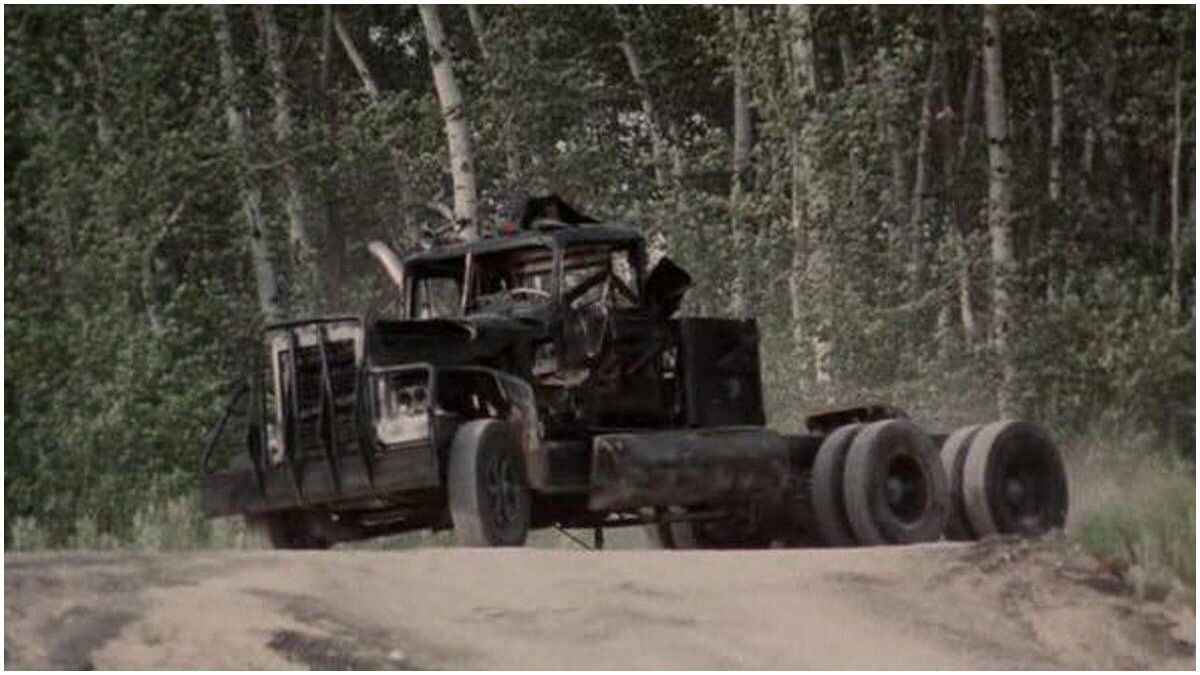
In 1986, Stephen King directed the only movie of his career. The film was Maximum Overdrive, based on his story Trucks from the Night Shift collection. King has admitted in interviews over the years that he was dealing with substance abuse problems at that time in his life and has few memories of directing the movie.
Maximum Overdrive remains one of the most polarizing King adaptations of all time, with many people calling it one of the worst and just as many loving it for the campiness and “so bad that its good” qualities. It also has a great AC/DC soundtrack. However, in 1997 it received a low budget remake for USA Network called Trucks.
The made-for-TV movie stars Timothy Busfield (The West Wing), Brendan Fletcher (Gracepoint) and Brenda Bakke (American Gothic). Ray and his son Logan arrive at a desert truck stop where some other people happen to show up at the same time. That is when Trucks pretty much follows the lead of Maximum Overdrive when the trucks start to terrorize everyone gathered at the truck stop.
The fun visuals from the fun and trashy Maximum Overdrive are missing here, and the low budget makes everything look second-rate. There is also a massive problem of the director padding the running time with gratuitous shots of people that have nothing to do with the characters at the truck stop dying. This movie remains one of the worst Stephen King TV adaptations ever made.
29. The Langoliers
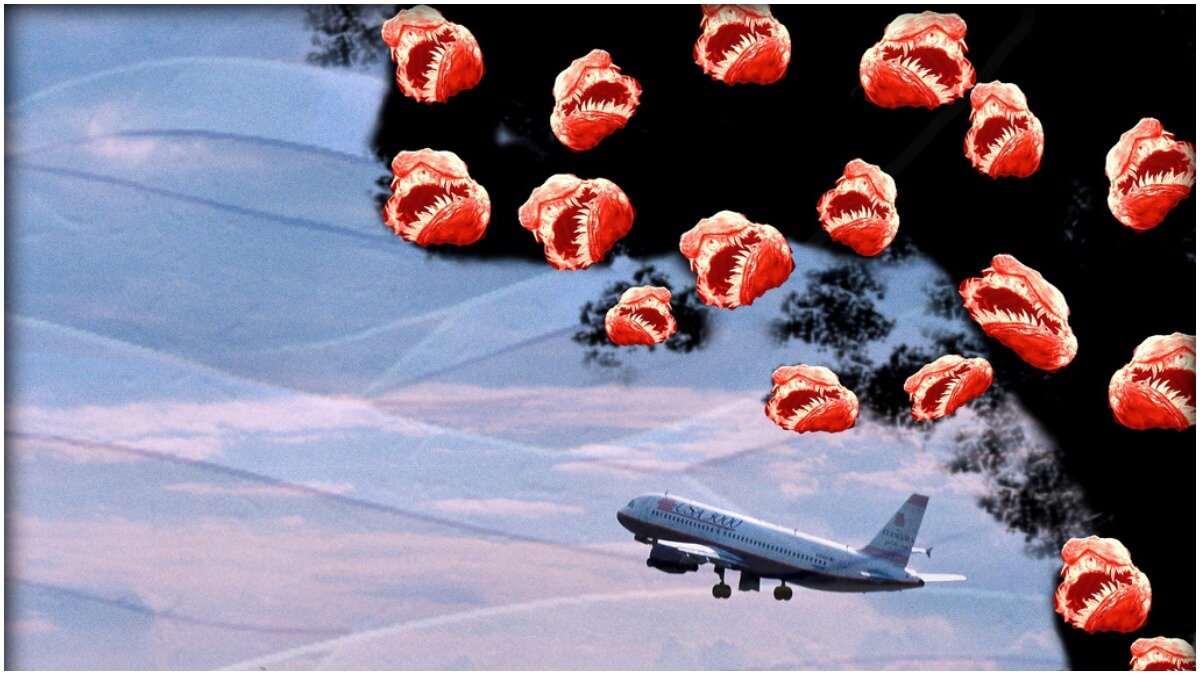
One of the biggest problems with Stephen King TV adaptations, especially the older ones, is the special effects – most of which ended up looking fake at best. With the adaptation of The Langoliers, originally part of the novella collection Four Past Midnight, the special effects were atrocious, a joke at best. Created as a two-night mini-series and directed by the incredibly talented Tom Holland (Child’s Play), the movie was plagued with both poor effects and subpar acting.
The two-night event starred Dean Stockwell (Quantum Leap), David Morse (12 Monkeys) and Bronson Pinchot (True Romance), and it seemed that Pinchot was the only actor who really put his heart into the project. The mini-series was about a group of people on an airplane that flies through a bright light, causing everyone but a small batch of people to disappear. Luckily, one of the remaining survivors was a pilot and he lands the plane in Bangor, Maine.
The group realizes there is no one at the airport they land at, and more distressing, something is coming – the Langoliers, creatures that will eat everything and leave behind an empty void. At the end of the day. The Langoliers is a Twilight Zone episode that runs too long and has some of the most ludicrous monsters ever created for a Stephen King TV adaptation. Add in a boring story and most of the cast calling their roles in and this was a low point in King’s career of adaptations.
28. Children of the Corn (2009)
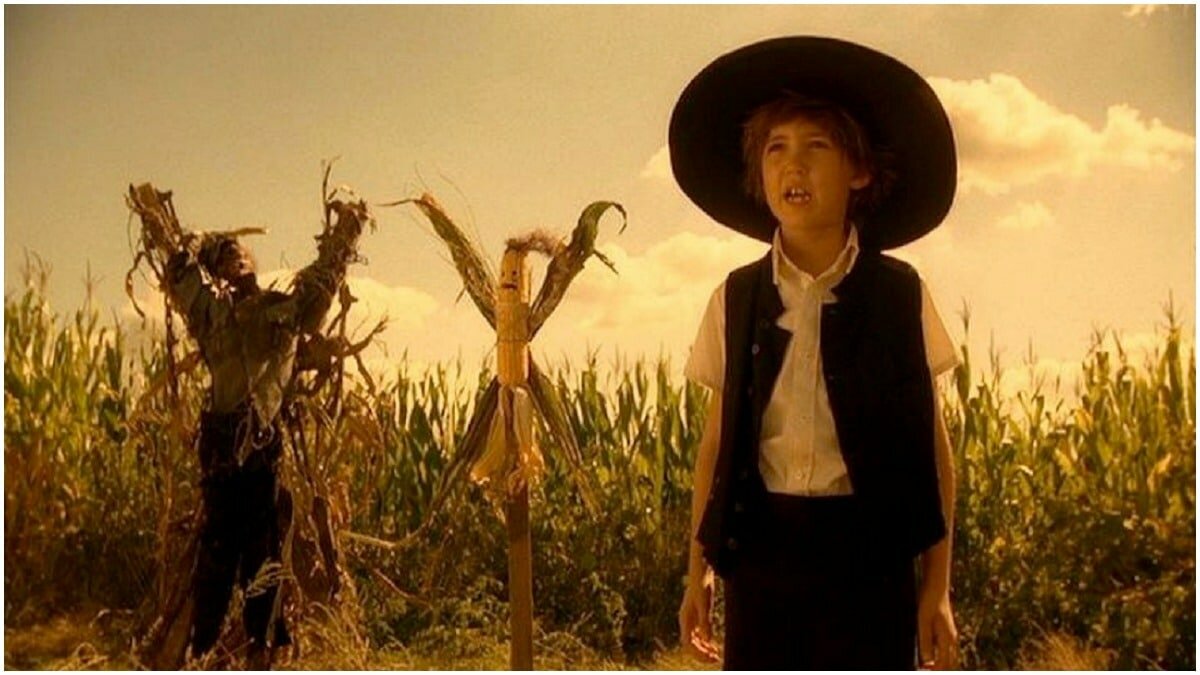
In 1984, Fritz Kiersch created the Stephen King adaptation Children of the Corn and that film lives on as one of the true King classics in low budget horror films. It was so successful that six sequels were created between 1992 and 2001. The story was based on the 1977 short story included in the book Night Shift. However, despite there being seven movies in the franchise, eight years after the final sequel went straight-to-DVD. SyFy decided to reboot it with a TV movie.
Much like the original movie, the remake involves a husband and wife driving through the Nebraska planes and coming into contact with the Children of the Corn child cult. Unlike the original movie, this one shows that the kids started their cult in 1963, with the movie then moving into present day 1975, showing this has been going on for a long time. The movie also speaks of the Canaanite God that demands that all children be sacrificed in the name of him at the age of 19.
To give this movie credit, it tries to move the story a little away from the original movie while making it a little more loyal to the original short story, allowing this version to try to stand on its own. However, one of the biggest problems is that the boy that plays Isaac in this remake is nowhere near the level of John Franklin from the original 1984 movie. It also doesn’t help that the two adults are so unlikeable that we want them dead. Add in terrible acting by the kids and this is a movie that is best avoided.
27. Rose Red
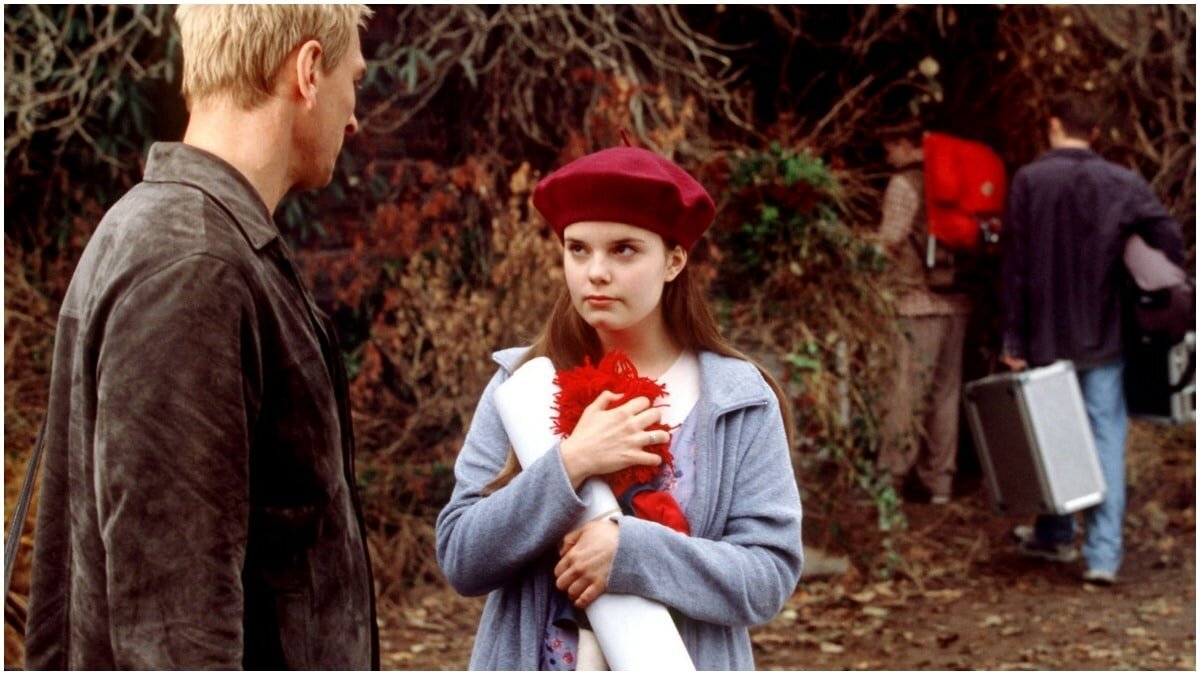
There have been a few Stephen King television projects that were not based on his novels or short stories and Rose Red is one of those. This was a screenplay written by King, originally pitched to Steven Spielberg as a movie idea in the ‘90s, and then finally made for television in 2002. The idea was a haunted house story, similar to the classic horror movie The Haunting, a dream project for King.
When Steven Spielberg and long-time King filmmaker Mick Garris passed on the movie, Craig R. Baxley (Stone Cold) signed on as the director and the film finally came to life. The story involved a university professor who brings a group of psychics to a mansion in Seattle believed haunted while trying to find proof of the paranormal. The movie then split between the past and present and ended up with deadly secrets awakening an evil spirit.
Airing as a mini-series on ABC, Rose Red was a huge ratings’ success, but the critical response was lacking. Like many Stephen King TV adaptations, this one also seemed bloated to fill the time and caused it to drag along with a generic haunted house storyline and cheap scares thrown in to dumb it down. If there is one thing to praise, it is the special effects, which were decent for such a low budget, but that was another problem. The Haunting left a lot to the imagination, knowing that is scarier than anything a movie could show.
26. Desperation

Back in 1996, Stephen King undertook an experiment of sorts. He released two interconnected books – one under his own name called Desperation and the second under his retired pseudonym Richard Bachman called The Regulators. The two books had the same characters but in completely different worlds – parallel universes. While The Regulators was a sci-fi styled story in a suburban neighborhood, Desperation was a horror story about people traveling along a desolated highway in Nevada.
In Desperation, a police deputy named Entragian is abducting people along the highway and it turns out that he is possessed by an evil being that lives by possessing people and transferring to others before they die. This Stephen King TV adaptation is directed by Mick Garris, a filmmaker who has created more King adaptations than anyone and stars the always entertaining Ron Perlman (Sons of Anarchy) as Entragian, with a supporting cast that includes Steven Webber (Wings) and Tom Skerritt (Alien).
Desperation was supposed to be a miniseries but instead aired on ABC as a three-hour movie and was trounced in the ratings due to going head-to-head with the reality series American Idol but the quality was not good enough to succeed on its own anyway. While Perlman is always an entertaining and fun actor, he is stuck here in an overlong story that contains too much filler to really deliver the tension and fears that the original story suggested.
25. Under the Dome
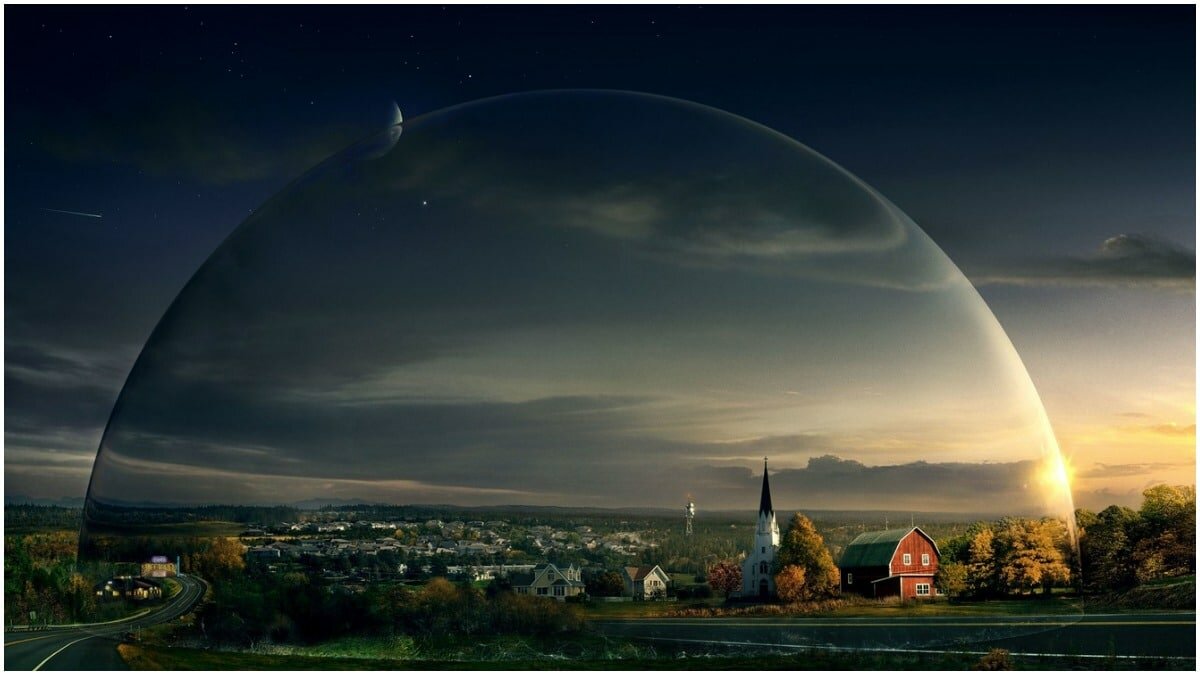
Under the Dome was a big chance for network TV to take a Stephen King novel and create something special. While this CBS drama series lasted three seasons, it lost King fans along the way in droves by delving way too far from the source material and taking away a lot of what made the original novel so compelling. As a Stephen King TV series adaptation, it was clearly bloated and really boring for much of the two seasons.
The novel, published in 2009, focuses on a small Maine town that suddenly finds itself trapped when a giant dome surrounds it, not letting anyone in or out. With the town cut off from the rest of the world, they start to fall apart when the police chief dies and a local selectman decides to make a power play to take over the town. The mystery is what caused the dome and whether they can escape it, but the real story is a typical Stephen King tale of how people react to extreme situations.
The TV show decided to really delve into the way people reacted but Under the Dome did it in a boring manner, with too many people acting irrationally and the series just drifting along when it should have been trucking it. The changes to major characters from the book didn’t win over King fans and the plodding and frustrating storylines lost everyone else.
24. Big Driver

Big Driver is one of the more recent films on this list. Based on the 2010 short story that appeared in Full Dark, No Stars, the movie itself came out in 2014 as a Lifetime movie. If that seems strange – a Stephen King TV adaptation for Lifetime Network – you will know what might be coming with this movie. The script was written by Richard Christian Matheson, the son of the legendary Richard Matheson (I Am Legend) and the film was directed by Oscar-nominated cinematographer Mikael Salomon (The Abyss).
Sadly, the final result didn’t match up to the names behind the movie. Maria Bello (A History of Violence) stars as Tess, a successful mystery writer driving through a rural route when she ends up with flat tires and stranded at an abandoned gas station. She is then beaten and raped and thrown into a culvert, where three other female bodies lay. She then chooses not to report the crime to save her own image but then chooses to seek vengeance on the rapist and other people involved.
The movie has interesting ideas, including Tess getting advice from one of her fictional characters (portrayed by Olympia Dukakis). However, that also hurts the movie because it is an exploitation movie at heart but the humorous tone it takes at times make it a hard movie to really take seriously and the Lifetime Network makes it a little less Stephen King and a little more sensationalized rape-revenge fantasy.
23. The Mist
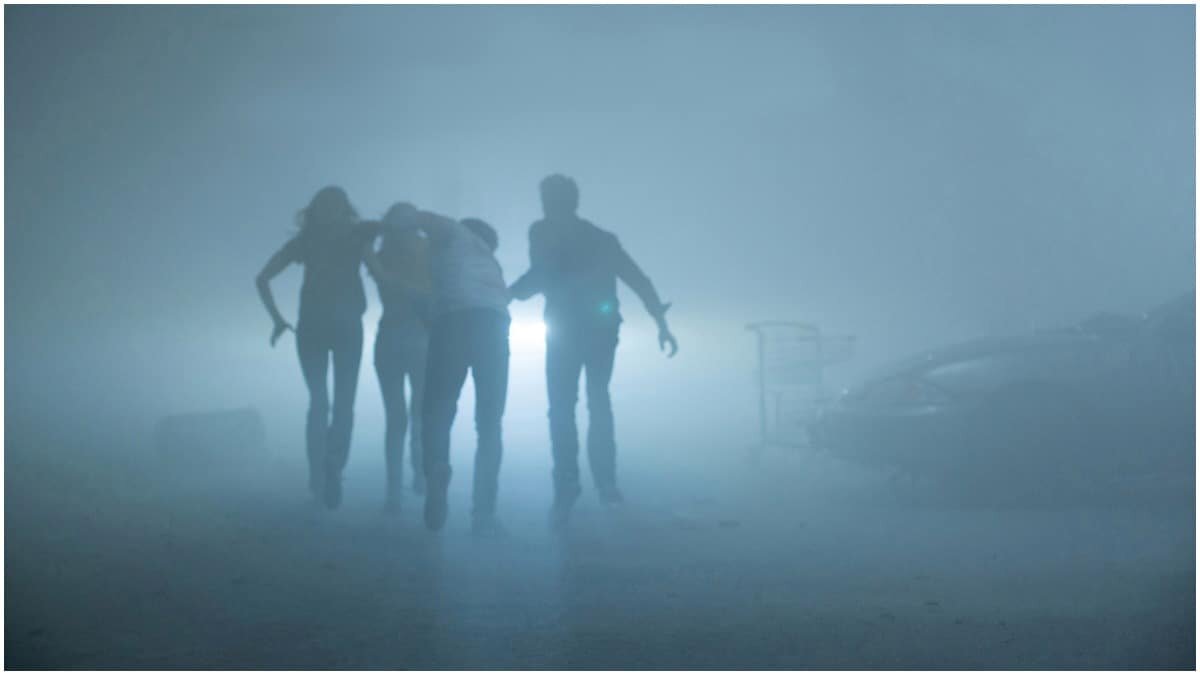
Released in 2017 on Spike TV, The Mist tried to bring one of Stephen King’s most beloved short stories to life as an actual television series. However, by the end of the first season, the series alienated most of the fans of King’s story and couldn’t bring in enough mainstream viewers to save it. Spike TV, despite not a huge cable network, canceled The Mist after just one season.
This isn’t the first time someone has adapted The Mist, as Frank Darabont (The Walking Dead) made it into a movie starring Thomas Jane that was polarizing due to the grim nature but beloved by most Stephen King fans. It even has a black and white version that has become a huge cult favorite with fans. The TV show based on the short story won’t receive the same love.
As for the story, instead of having the mist roll in and trap a number of people in a supermarket, The Mist Stephen King TV adaptation focused on the entire town – starting before the mist rolls in – and then dealing more with the controversies surrounding the people of the town. The show even goes beyond the monsters in the mist and has it show people images from their past, as well as bringing their fears to life. It was an interesting take but was so dark and bleak that had most people cheering for deaths rather than survival of the townspeople.
22. Bag of Bones

In 2011, the A&E Network aired the Stephen King TV adaptation for Bag of Bones. Longtime King director Mick Garris took on the project and created a two-night miniseries based on the 1998 novel about an author who suffers writer’s block at an isolated lake house after his wife dies. He also suffers from delusions that are exasperated when a ghost shows up at the lake house that might somehow tie into the relationship between a young girl and her widowed mother.
The mini-series stars Pierce Brosnan (James Bond) as author Mike Noonan, and the first thing the series does is change his wife Jo’s death from an aneurysm to an accident where a bus hits and kills her. After that, Mike heads to the lake house, and the proper story gets underway. However, a considerable problem for the entire adaptation is the over-acting of Brosnan, a talented actor who drives Mike to levels of insanity throughout the movie.
The TV adaptation also tried too hard to be scary, without succeeding, and seemed to prefer the horrors to the actual drama of the man and his neighbors that made the novel work so well. The movie looks great and is one of the most stylish Stephen King TV adaptations but the story gets so tangled up in its own supernatural happenings that the entire thing just falls short in the end.
21. Tommyknockers
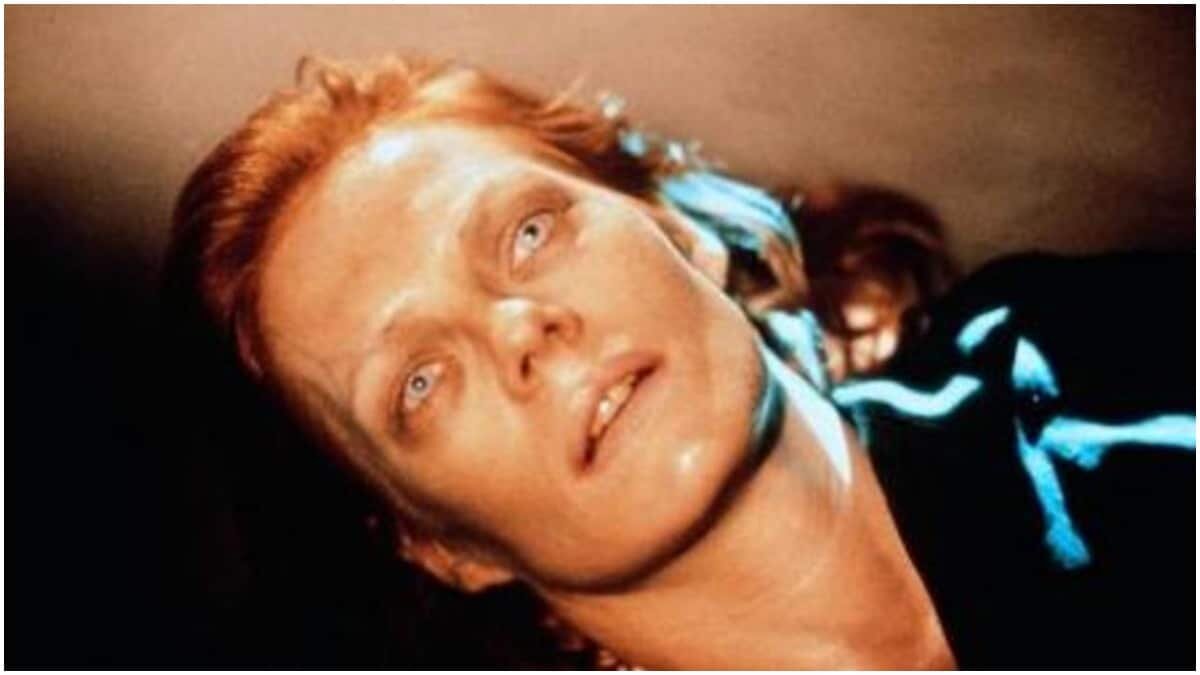
Tommyknockers had two things going against it from the start. First of all, Tommyknockers is one of the most disliked Stephen King novels by his fans. It was King’s attempt at creating a science fiction novel instead of a pure horror novel and wasn’t well accepted by his faithful fans, many of whom still deride the novel to this day. The second problem was that Tommyknockers didn’t really improve on the problems with the story and added to it by delivering some of the most insipid special effects anyone could have expected.
The 1993 television mini-series starred Jimmy Smits, who was a huge television star at the time thanks to L.A. Law, and Marg Helgenberger, seven years before she became a beloved TV actress for her role on C.S.I. The story of the mini-series followed that of the Stephen King novel. Marg portrayed Bobbi Anderson, a western fiction writer, and Smits was her boyfriend Jim Gardner, a poet. They live outside Haven, Maine, and stumble upon something buried underground. As they excavate the object, people in town begin to undergo mental and physical changes.
The acting isn’t that bad, but this movie completely dies due to the abysmal special effects and poor direction (the original director was fired just days into the shoot and a replacement had to come in and finish the movie). This isn’t a good movie but it isn’t as bad as others might have you believe.
20. Carrie (2002)

Carrie has now been made three different times, with the first being the clear best starring Sissy Spacek and the most recent being an entertaining effort starting Chloe Moretz. However, in between those two movies was a made-for-TV network effort with a 2002 version made for NBC. The pedigree was huge with this one as the screenplay was written by Bryan Fuller (Hannibal, American Gods) but the movie itself, which was supposed to be a backdoor pilot for what they hoped could be a TV show, fell short.
David Carson (Star Trek: Deep Space Nine) helmed the movie and set it up with a police interview investigating a case concerning the missing Carrie White (Angela Bettis). The most significant names in the cast were David Keith (Firestarter) and Patricia Clarkson (Six Feet Under) as the police detective investigating the case and Carrie’s mother Margaret White respectively.
The biggest problem with this version of Carrie is that is copies a lot from the Brian Del Palma movie and what it adds is mostly straight from King’s novel, making this a repetitive effort. The one difference and a nice change is making Margaret less crazed when it comes to dealing with Carrie. The entire cast is good while the CGI is disappointing, as was par for course with Stephen King TV adaptations of that era. It just wasn’t fresh enough to help them kickstart the TV show that Fuller hoped to help bring to life.
19. Kingdom Hospital
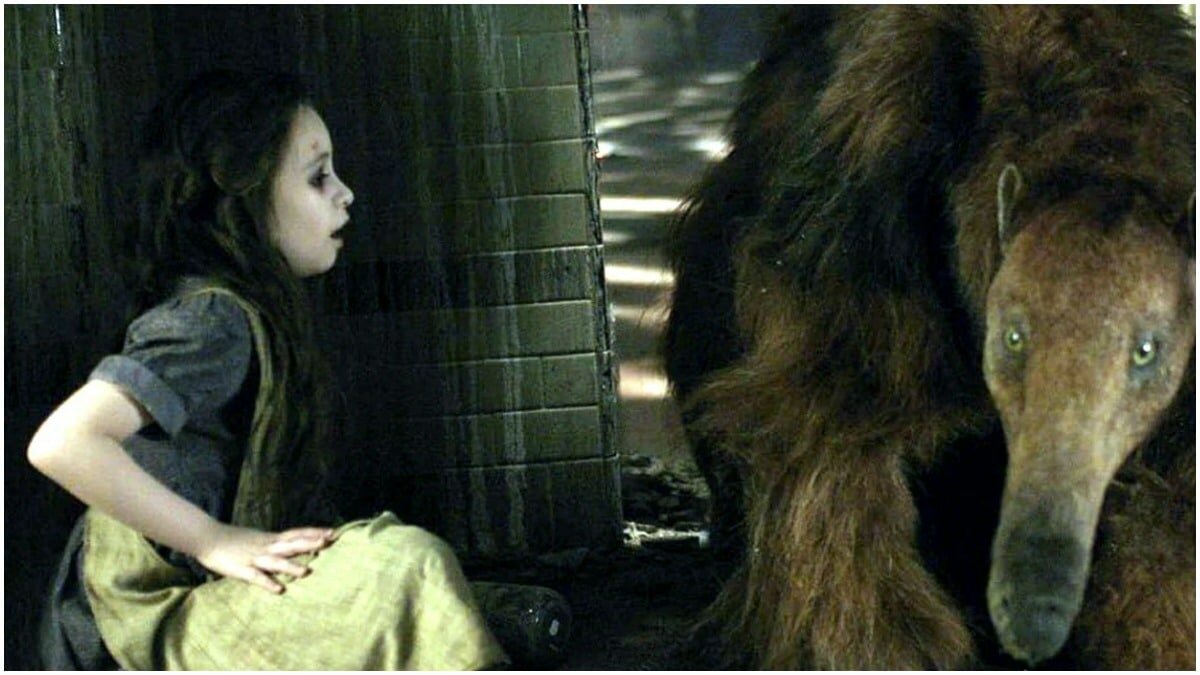
Kingdom Hospital was an interesting Stephen King television project. Instead of being based on one of King’s books or short stories, this 13-episode television series was based on the Danish TV series The Kingdom by Lars von Trier. Anyone who is familiar with von Trier’s work knows that he makes bizarre, minimalist movies and his TV show was no different. Von Trier’s TV series lasted eight episodes while Stephen King’s series lasted 12 in the United States.
Initially, ABC planned to make this as a mini-series but changed their minds and created it as a full season television series, although it only lasted the one season. King himself developed the American version of the series and moved the story to Maine. Craig Baxley (Rose Red) came on to direct it and some very familiar faces signed on including Bruce Davison (X-Men), Diane Ladd (Wild at Heart), Andrew McCarthy (Pretty in Pink) and Ed Begley Jr. (St. Elsewhere).
The story involved a hospital in Maine that happens to be haunted by spirits. The series was originally meant to be a mini-series, so it is clear why it ended up a bit disjointed and bloated at times. It does deserve credit for its strange moments, similar to Twin Peaks, but without the ingenuity of that show. The show ended up dropping in ratings thanks in large part to the strange nature of the show but the lack of scares that Stephen King fans might have expected.
18. Golden Years
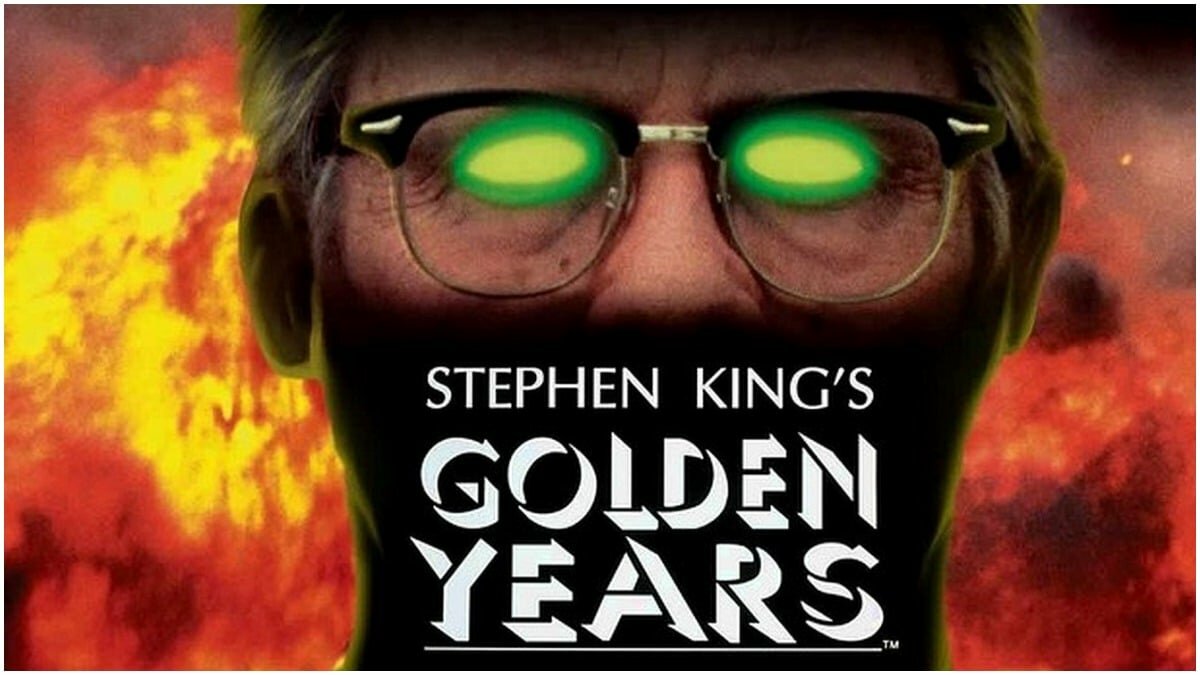
Golden Years is another Stephen King original that was not based on a prior novel or short story. Stephen King wrote the screenplay for this mini-series that aired on CBS in 1991. This series was a very different King adaptation, an eight-episode series that was not so much a King horror series but instead was more like what it would look like if Stephen King wrote Twin Peaks. King once said that Golden Years was like Twin Peaks without the delirium.
The entire mini-series was supposed to lead into a regular television series but CBS refused to pick it up after the eight episodes ended. The story focused on Harlan Williams, an elderly janitor, who starts to age backward after an explosion. Golden Years also ties into other Stephen King stories like Firestarter and The Tommyknockers, as the secret agency The Shop showed up to try to capture Harlan.
The most significant problem here is that – much like King’s other mini-series – this one dragged on and seemed to just drift from episode to episode with things happening but little in the way of suspense or horror or even action for that matter. Golden Years is a series about growing old together and throws in the regular King tropes with a secret organization and the threat of death. It isn’t horrible, but it isn’t something people need to rush out to see.
17. The Shining
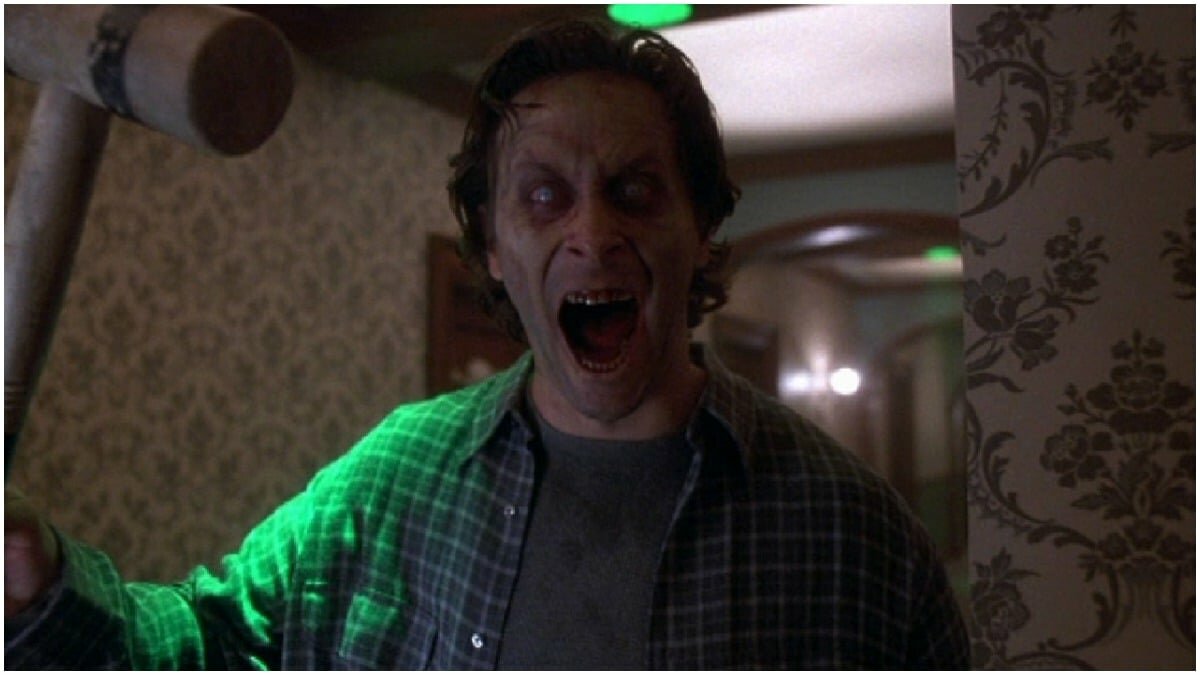
One of the greatest horror movies of all time is Stanley Kubrick’s The Shining, and while it is a fantastically nuanced story of a man going insane, it is in no way a great Stephen King adaptation. It is so far off base from what King was trying to say with his novel that the horror master takes every chance he gets to bash the movie, even now – almost 40 years after its release. In the film, Jack Torrance seems insane from the start, and the haunting of the Overlook Hotel is practically an afterthought.
In 1997, Stephen King got a chance to make things right. He wrote his own screenplay for a mini-series that his collaborator Mick Garris directed. It ended up as an ABC mini-series, and many Stephen King fans will argue that it – and not Kubrick’s masterpiece – is the better version simply because it finally followed King’s ideas from the book. Jack Torrance is an alcoholic father who takes his family to a remote hotel in Colorado to be the caretaker during the winter months when it is closed.
The sense of isolation added to the fact that the Overlook Hotel is haunted led to Jack – an otherwise good husband and father – losing his sanity and trying to kill his family. There is also a stronger look at Danny’s “Shining” abilities. While this is the more faithful version, it is also a lot less serious than the Kubrick movie and is very hokey at times, especially when Steven Webber’s Jack looks possessed when he snaps to try to kill his family.
16. Salem’s Lot (2004)

Unlike a lot of movies on this list, Salem’s Lot received two versions, but both were on television without the King vampire story ever getting a theatrical release. The second version came out in 2004 with Rob Lowe in the lead.
It also featured a fantastic supporting cast that included Andre Braugher (Brooklyn Nine-Nine), Donald Sutherland (Invasion of the Body Snatchers), Samantha Mathis (The Strain), Rutger Hauer (Blade Runner) and James Cromwell (L.A. Confidential) as Father Callahan.
This Stephen King TV adaptation aired on TNT, a cable network release which helped to allow this mini-series to take a few more chances than the network television adaptations couldn’t touch.
Much of the story is similar to the original 1979 mini-series with Ben Mears (Lowe) returning to his home in Jerusalem’s Lot to work on his new novel and try to work out some traumatic childhood memories.
The problem with the new Salem’s Lot is that it isn’t really scary. None of the vampires bring the fear that the 1979 movie did. For King fans, there was disappointment that important moments from the book was glossed over in the mini-series and regular TV fans watched some moments that just seemed too silly for a horror movie (Ben used two tongue depressors as a cross to fend off a vampire).
On the positive side, there were some great performances, especially Donald Sutherland as Richard Straker.
15. Gerald’s Game

In 1992, Stephen King wrote a very different type of horror novel. In Gerald’s Game, King wrote a story about a man and wife who go to a secluded cabin in the woods.
When their sex play goes too far, and husband Gerald won’t stop, Jessie kicks her husband in the groin to make him stop and he has a heart attack and dies. The problem is that Jessie is handcuffed to the headboard and no one else is there to free her.
Meanwhile, someone may or may not be outside the cabin watching, and a stray dog makes its way in and starts eating Gerald.
In 2017, Mike Flanagan (Oculus) directed the movie starring Carla Gugino (Watchmen) as Jessie and Bruce Greenwood (National Treasure) as Gerald. This film was made directly for Netflix, which allowed it to take chances that most other Stephen King TV adaptations couldn’t even fathom.
Carla Gugino was fantastic in her role as Jessie, something that was very important for this movie to succeed since she carried most of it by herself.
Flanagan uses a lot of nice tricks in the movie to move it forward with just one character in most of the scenes, including having Jessie have delusions and talking to illusions. However, the one thing that holds this movie down is the ending, which is loyal to the book but neither end is very good.
14. Nightmares & Dreamscapes

Up next is an anthology television series. In 2006, TNT created a series called Nightmares & Dreamscapes, and it featured a new Stephen King adaptation every week.
There were eight weeks, and each episode was the length of a regular one-hour television episode. Most of the stories were from the short story collection of the same name, but three episodes were from other books.
The episodes included adaptations of “Battleground,” “Crouch End,” “Umney’s Last Case,” “The End of the Whole Mess,” “The Road Virus Heads North,” “The Fifth Quarter,” “Autopsy Room Four,” and “You Know They Got a Hell of a Band.” Names involved included stars like Tom Berenger, Ron Livingston, William H. Macy, William Hurt and Steven Weber.
These Stephen King TV adaptations were hit-and-miss, but they were all entertaining in their own right. “Battleground” might be the highlight but “Umney’s Last Case” was also a solid effort despite straying somewhat from the theme of the original story.
“The End of the Whole Mess” is also a great little sci-fi episode but the other episodes are not up to that level. Despite that, seeing an entire collection of King short stories adapted into films made this a can’t miss event for fans.
13. 1922

The newest addition to Stephen King TV adaptations is 1922, which like Gerald’s Game was made directly for Netflix. The movie stars Thomas Jane (The Mist) as a father in 1922 whose wife threatens to leave him and take their son with her.
To keep his son, Wilfred kills his wife and throws her into their well. His actions attract the attention of the local sheriff, who investigates her disappearance, and also helps Wilfred financially with his farm.
Wilfred, who convinced his son to help kill her, then suffers through a horror story that pays homage to Edgar Allen Poe’s Tale Tell Heart, although since this is a Stephen King adaptation, includes the decaying corpse of his wife to appear to come after Wilfred for revenge.
The Netflix adaptation is very loyal to the original short story from Full Dark, No Stars, except for changing the ending to add some ambiguity to the entire climax.
The movie is a slow burn, well-acted and well-directed film with a lot of creepy and disturbing scenes. It shares a similarity with The Shining, where a husband and father goes mad, but does it in a way that is both poetic, disturbing, and somehow fresh in an old theme of a killer’s remorse.
Thomas Jane is spot-on in his performance, and this is one of King’s better recent television adaptations.
12. The Night Flier
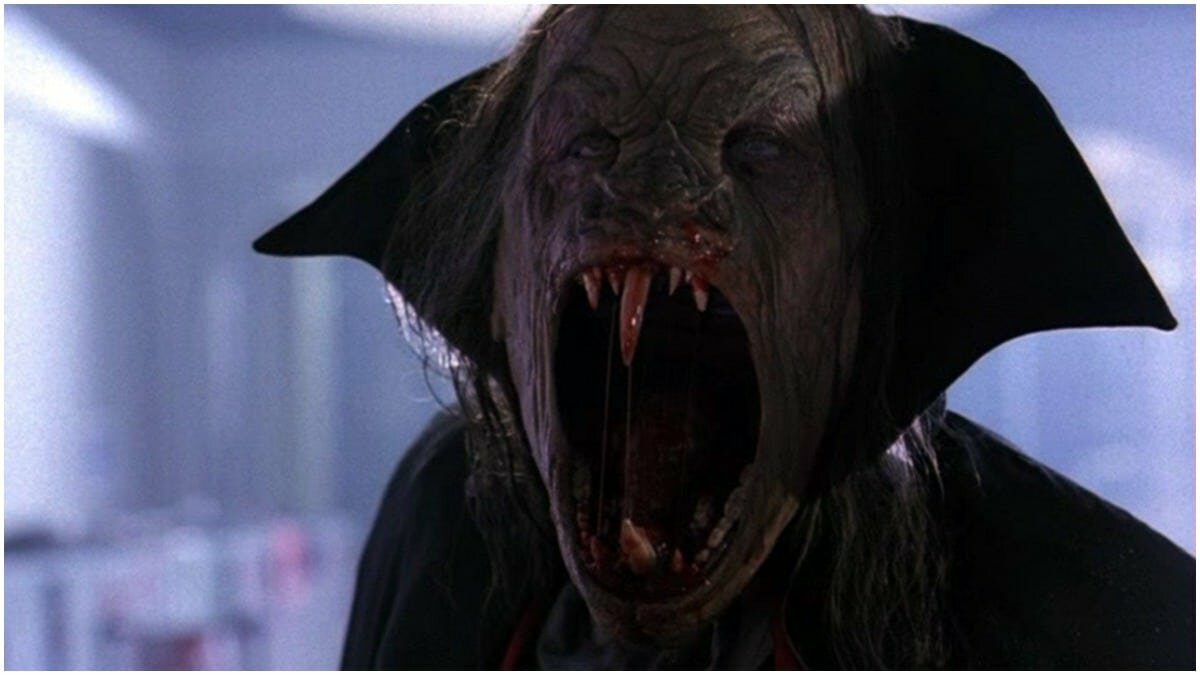
While it is rarely talked about, the 1997 Stephen King TV adaptation The Night Flier is a solid little horror movie that deserves more attention.
The movie stars Miguel Ferrer (NCIS: Los Angeles) as reporter Richard Dees, a man trying to investigate the story of a murderer whose motif is killing people in a style similar to that of a vampire. The twist is, as one might expect from a Stephen King story, that the killer is a vampire.
The original short story was originally published in a 1988 horror anthology called Prime Evil and then appeared in King’s Nightmares & Dreamscapes short story collection in 1993.
Because the movie came out in 1997, that was a quick turnaround from the moment that it appeared in one of King’s books. When looking at the story from a personal level, this is King attacking tabloid journalism.
The Night Flier was an HBO release, and the movie contains a ton of Easter eggs, including tabloid story topics, referring to other King stories like Strawberry Spring, Children of the Corn and The Lawnmower Man.
It is funny moments like these that make King fans smile that mixes in with some decent practical effects – especially with The Night Flier himself – that makes this a movie worth seeking out.
11. Sometimes They Come Back

Sometimes They Come Back was initially written in 1974 for a magazine, and Stephen King included it in his very first collection of short stories titled Night Shift.
The story centered on a school teacher named Jim who saw his brother murdered by kids in a gang when he was a child. Soon, kids in his class start dying, and new students enroll to replace them – the same kids who killed his brother 17 years before – none of them aged at all.
The made-for-TV movie adaptation came in 1991 for CBS and starred Tim Matheson (Animal House) as Jim. Just like the short story, students begin to die – all looking like suicides – and one by one the gang members who killed his brother so many years before show up and seem to be targeting Jim himself.
There were some significant changes here, with the ending a little more uplifting and the way that Jim dealt with the greasers a little less fantastical.
When it was all said and done, Sometimes They Come Back was an above-average Stephen King TV adaptation and one that worked well to be both frightening and tense.
For a network television movie, it also worked well to keep fans scared without having to cross too many lines of decency. It was successful enough to warrant two sequels, both suffering from diminishing returns.
10. Haven
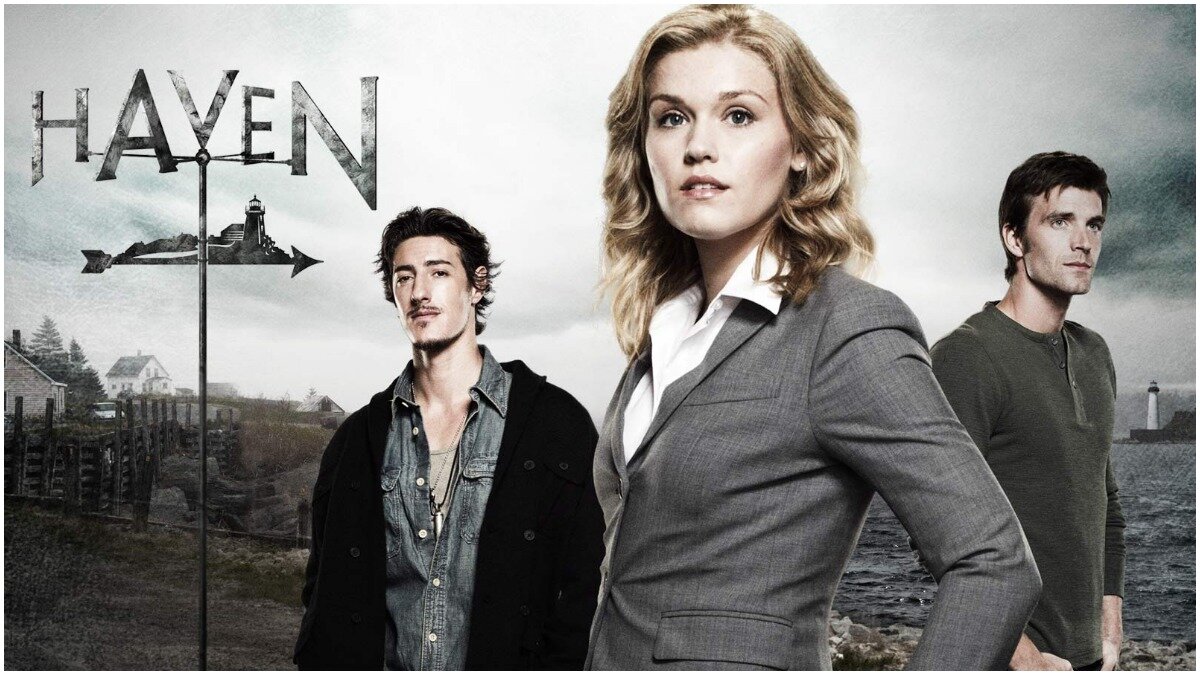
If you ask fans of Haven what it was based on, there are a large number of SyFy fans who would have no idea that this started out as a Stephen King adaptation. In 2005, Stephen King was asked to contribute a novel to the Hard Case Crime series of hardboiled detective books.
His offering was called The Colorado Kid and was about a group of reporters who are talking about an unexplained mystery, and they tell her the story of the Colorado Kid.
Haven takes place in the same town as that fictional newspaper and stars Emily Rose as FBI Special Agent Audrey Parker sent to Haven to investigate a case but realizing there are some unexplained mysteries simmering under the surface of this Maine coastal town.
She ends up quitting the FBI and taking on a role in the Haven Police Department before she realizes that there may be something about her past that she doesn’t remember that may tie into the mysteries of the town.
This was one of the most successful Stephen King long-running TV series, lasting five seasons and 78 episodes before SyFy canceled the series.
While the series wasn’t groundbreaking, it was highly entertaining and took the police procedural and added some nice supernatural elements. If anyone is familiar with SyFy original series, this is a step above many and was the start of the network starting to put out solid originals.
9. The Outsider
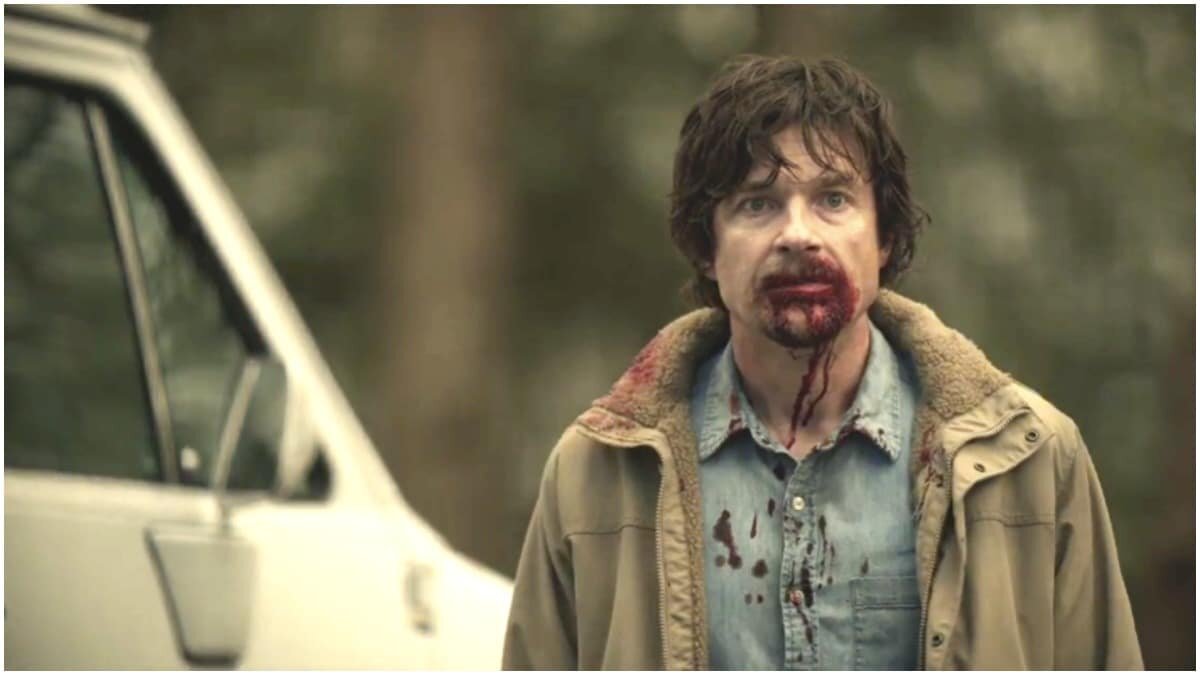
The Outsider is the newest addition to the Stephen King television library and it ended up as a great adaptation thanks mostly to the fact that it was on HBO, meaning that it didn’t get cut up and censored like network television adaptations in the past.
The story is a twisted murder mystery. Jason Bateman starred as Terry Maitland, a little league baseball coach arrested and charged with a murder with all the evidence pointing at his guilt. The problem is that he was not in town when the murder happened and has an airtight alibi. Of course, this all came down to a doppleganger, and the tragic part is that Terry died before his trial and before the world learned he was innocent.
The acting all the way through was solid, with Ben Mendelsohn great as Det. Ralph Anderson and Cynthia Erivo stealing every scene she was in as the King-favorite character Holly Gibney. The series is slow burn and matches up well with the book for another great later-day Stephen King TV adaptation.
8. Castle Rock
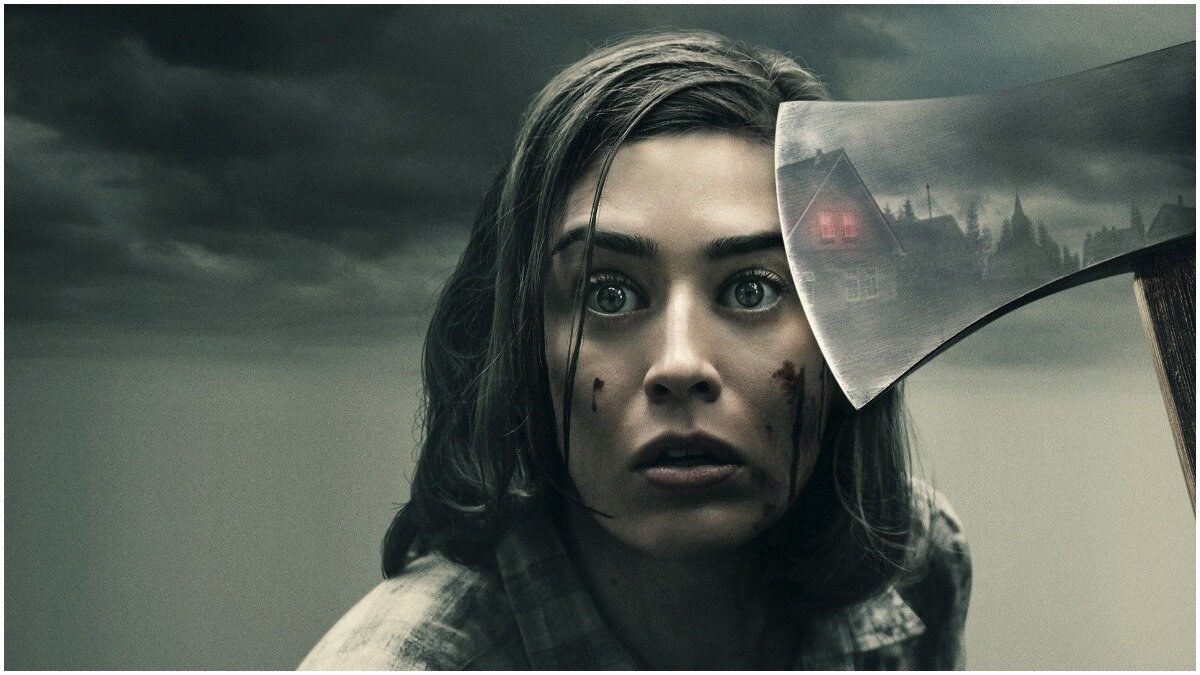
While it is not based on a Stephen King novel, the Hulu original series Castle Rock is based on the world that many of King’s novels exist in. Castle Rock is the fictional town in Maine that was the location for novels like The Dead Zone, Doctor Sleep and Needful Things.
The series, produced by J.J. Abrams, had a chance to create a new story in the world of Stephen King. It also had a ton of fun Stephen King Easter eggs, including Shawshank Prison, Sheriff Alan Pangborn, actress Sissy Spacek from Carrie and Bill Skarsgard in a lead role (he was Pennywise in the new It movie).
The first season aired in 2017 and had Henry Deaver (Andre Holland) as an attorney who returns to represent a prisoner from Shawshank Prison known as The Kid that just appeared one day and no one knows who he is or where he is from.
As a Hulu original series, it was 10 episodes in length. It received mostly positive ratings with an 86-percent approval rating on Rotten Tomatoes. You can check out our recaps starting out with the premiere a the link above.
The series looks to be an anthology series (ala Fargo and American Horror Story), so whether future seasons keep this highly rated (or even moves it up the list remains to be seen).
7. Mr. Mercedes

Not a lot of people were able to see Mr. Mercedes because Stephen King sold it to AT&T who then created the show and broadcast it on their own network, which was only available on UVerse and Direct TV.
However, those who were able to see it saw a Stephen King TV adaptation that shared more in common with is writing than almost anything else made from his work. The series is based on the first book in the Bill Hodges trilogy about a serial killer who never escaped that begins tormenting the retired police officer who worked the case.
While the plot of the series if Bill Hodges trying to once again capture the one serial killer that escaped justice before that same killer hurts anyone that he loves, the real treat of this show is the small-town setting.
One of King’s specialties in his writing is to take people in small towns and put them in extraordinary situations and then showing how they deal with it. In this case, there isn’t an extraordinary situation, but instead just a serial killer with a screwed-up life messing with a retired cop with a messed-up life.
This series is about two men who are damaged and how their lives intertwine. There are a lot of interesting characters floating through this series, from the killer’s twister mother to the younger sister of one of his victims developing a relationship with Hodges.
The conflict is interesting, but the small-town setting and the internal conflicts of the major characters make this series a must-watch.
6. The Stand
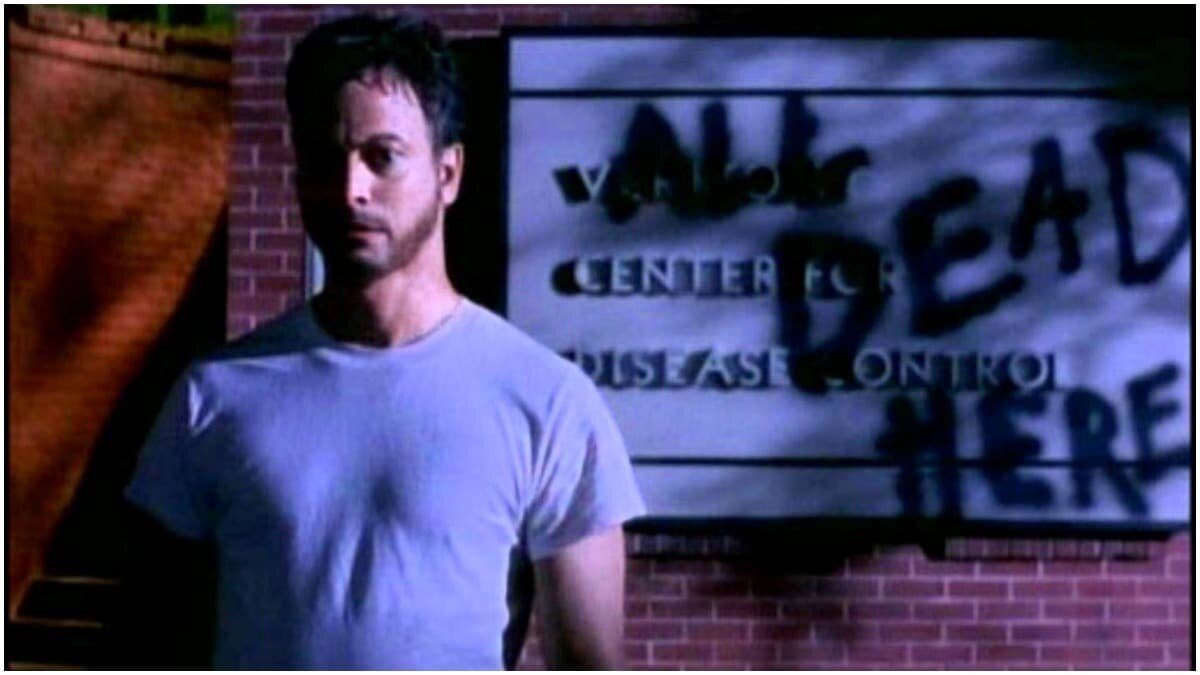
Stephen King fans give The Stand a lot of grief and it honestly doesn’t deserve it. The mini-series never stood a chance, to begin with. The Stand is widely considered the greatest novel that Stephen King ever wrote. It is about the end of the world, due to a disease, and the battle between the forces of good and evil, with the bad guys led by the amazing character of Randall Flagg. It was an amazing epic story and there was no way a network television adaptation could ever do it justice.
Created for ABC in 1994, The Stand was four-episode mini-series that did everything that it could while still pleasing the network censors. That meant having to leave out some great scenes, just because the violence wouldn’t pass muster on network television. However, what they did allow was very loyal to the source material, and this might be Mick Garris’ best Stephen King adaptation.
The cast was top-notch, with Gary Sinise (CSI: New York) as Stu Redman, Molly Ringwald as Frannie Goldsmith and Rob Lowe as Nick Andrus. On the other side was heavy hitters like Miguel Ferrer as Lloyd Henreid, Matt Frewer (Max Headroom) as Trashcan Man and Jamey Sheridan as Randall Flagg. While it could never match up to King’s novel, it remains one of the best TV adaptations based on his work.
5. It

2017 saw arguably one of the best Stephen King adaptations of all-time with the big screen release of It. The idea that this movie was so great is surprising to the many people who wanted to dismiss it when they first heard about it and saw images of the new Pennywise, the Dancing Clown. That is because the 1990 miniseries remains in the hearts of many of Stephen King’s fans.
It had a lot of problems as a miniseries but none of them keep it from being a favorite and a cult classic for many horror fans. The biggest lure of this mini-series falls squarely on the lap of Tim Curry. While the movie version of It will go down as one of the best of all-time, Curry’s Pennywise will remain, for many fans, the best version of the villain from one of King’s most beloved novels. To recap, the novel saw a demon feeding on children in the town of Derry, Maine, and the demon takes the form of the clown, Pennywise.
When a group of kids defeats Pennywise, the children return years later as adults to finish the job. The mini-series does what King’s novel did, and that is to flip back-and-forth between the characters as kids and adults, and big-name television actors like Richard Thomas (The Waltons), John Ritter (Three’s Company), Harry Anderson (Night Court) and Anette O’Toole (Smallville) carried the load. The only drawback was the finale with a ridiculous looking spider-demon.
4. Storm of the Century
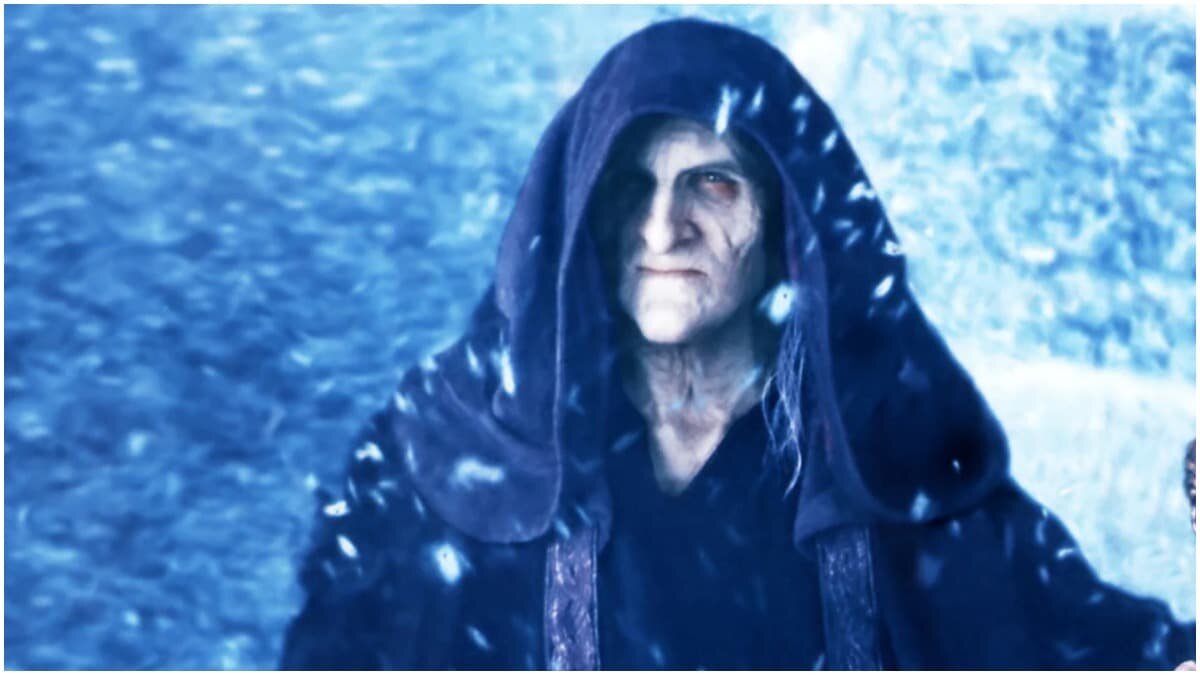
Storm of the Century is another Stephen King original script that is not based on any of his previous novels or short stories. Released in 1999 by ABC and directed by Craig Baxley, Storm of the Century takes place on Little Tall Island in Maine (the same town Dolores Claiborne took place) during a blizzard that is so strong that it blocks off all outside communication from the island and secludes all the residents there with no way out.
Soon, a mysterious stranger named Andre Linoge (Colm Feore) shows up in town and reveals that he knows the dark secrets that rest in the hearts of the townspeople. While he is put in jail by the town’s constable (Tim Daly), he is still able to exert his influence and people begin to commit suicide and suffer from terrible dreams. He then tells them that he will not leave until they give him what he wants – all the children of the town given to him.
For a mini-series on ABC, Storm of the Century was an incredibly dark and grim story – a morality tale that doesn’t hold back when showing that people will do anything to protect themselves. It is a philosophical movie that forces the viewers to ask a lot of questions and remains one of the best Stephen King TV adaptations ever made.
3. 11.22.63
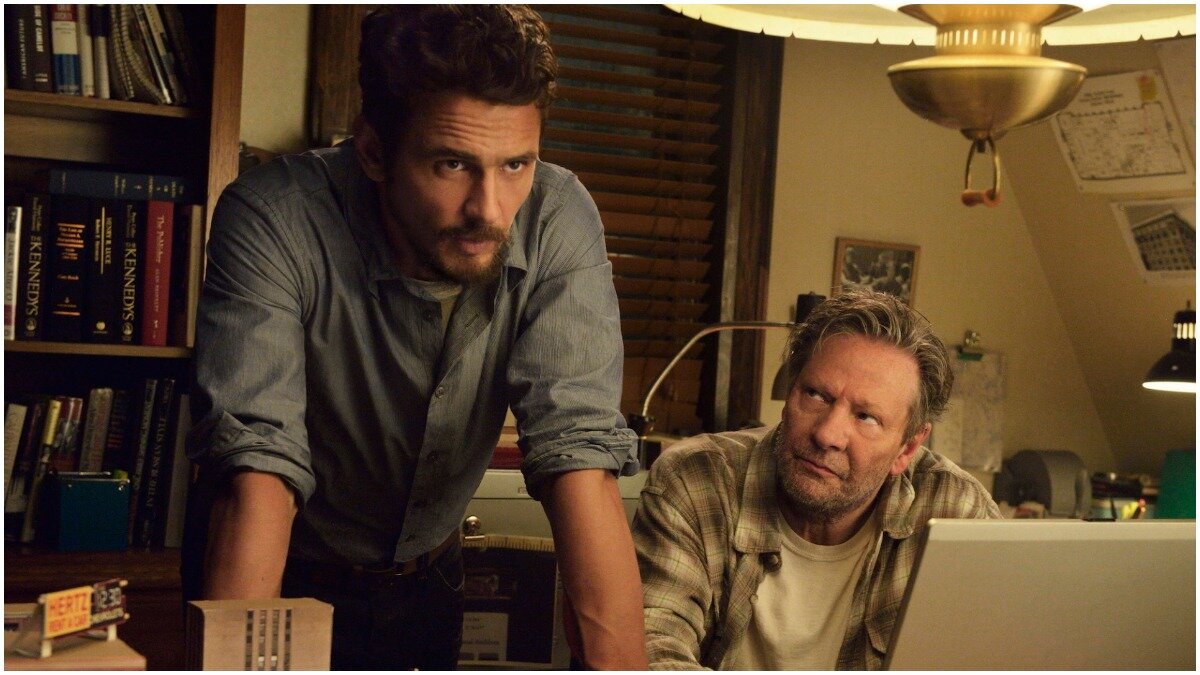
While Netflix is proving to be an excellent platform for Stephen King TV adaptations, the most critical streaming service for King might end up being Hulu. This is because, in 2018 they will start the new Castle Rock series, taking place in the most famous of King’s fictional towns. However, the adaptation that proved to Hulu how big Stephen King could be for their platform was the mini-series based on the novel 11.22.63.
This novel is a time travel story that features a school teacher named Jake Epping who learns that there is a portal that will take a person back in time to 1960. A diner owner named Al has been using this to try to figure out a way to go back in time to stop the JFK assassination. However, when a person goes back, they can stay as long as they want but come back just minutes later in real-time. Al asks Jake to take his place since he is dying, and Jake agrees and heads back in time to try to figure out a way to stop the JFK assassination and hopefully make the world a better place in the future.
James Franco took on the role of Jake while Chris Cooper stars as Al. The mini-series lasted eight episodes and was a smart look at time travel and how the past will fight back to prevent changes that could disrupt the future. It is also a great story of how changing history isn’t always the best thing and that sometimes it is just better to leave the past alone. This is a great story, a great mini-series, and gives us high hopes for Castle Rock in 2018.
2. The Dead Zone

The most successful Stephen King TV series of all-time is The Dead Zone. The novel came out in 1979, the seventh book for King, and told the story of Johnny Smith, a man who suffered a head injury as a child and developed the supernatural ability to see the future by touching someone. The book then had Johnny realize that if a man named Greg Stillson lives to become president, he will bring about a nuclear war that will end the world.
Four years later, filmmaking mastermind David Cronenberg adapted it into a great film with Christopher Walken starring as Johnny. Finally, in 2002, USA Network produced a television series starring Anthony Michael Hall as Johnny Smith. The idea of Johnny being able to save people’s lives by seeing the future made it perfect for episodic television and the idea of Greg Stillson (Sean Patrick Flannery) causing the destruction of the world was a great running storyline for the series.
Sadly, USA Network canceled the series after six seasons. While that is more time than many television series get, the fact is that The Dead Zone never got a proper finale. Hall was perfect as Smith, and the entire series was a blast. It is just too bad low ratings at the end never allowed the show to see the end of Johnny and Stillson’s storyline.
1. Salem’s Lot (1979)
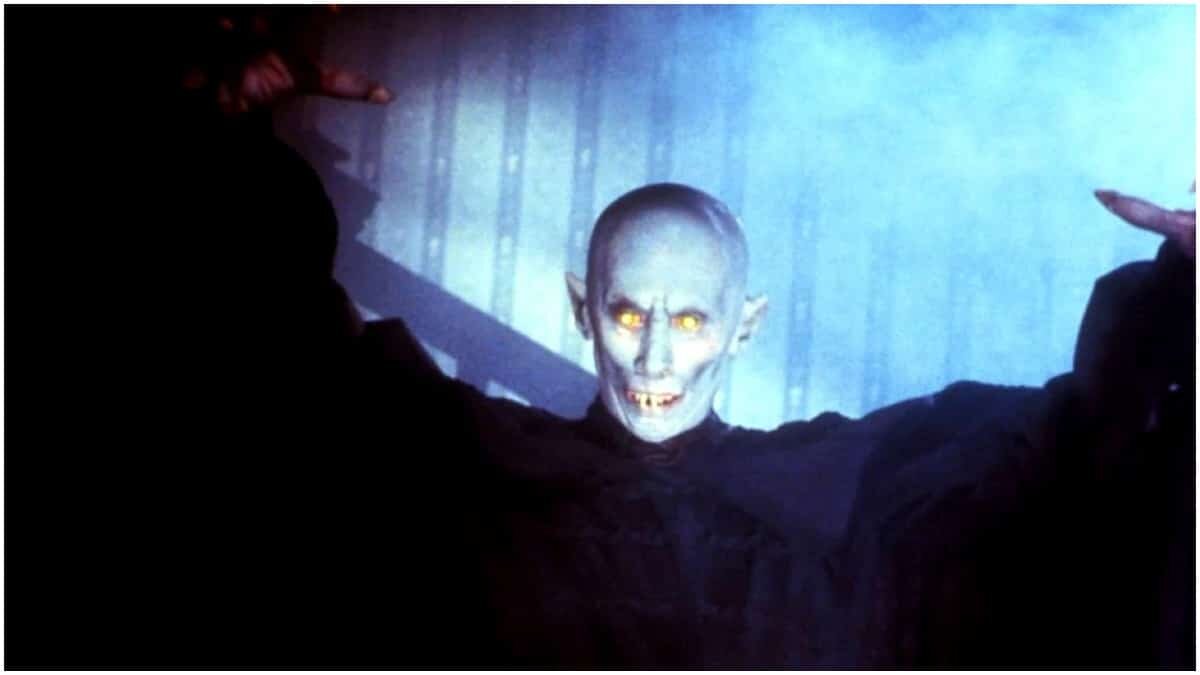
When it comes to the Stephen King TV adaptations, it has been hard for anything to match the first. Salem’s Lot came out in 1979, four years after King released the novel – his second release after Carrie. Directed by the great Tobe Hooper (The Texas Chainsaw Massacre), Salem’s Lot tells the story of a writer who returns to his hometown of Jerusalem’s Lot to try to finish his latest novel and learns that vampires have taken over the town.
Stephen King wrote Salem’s Lot before Anne Rice published Interview with the Vampire and he brought vampires into the modern day, especially placing them in small-town America. The CBS mini-series did a great job of painting this portrait as well with Reggie Barlow frightening as the legendary vampire Barlow and Richard Straker excellent in his role as Richard Straker, the man bringing in the vampires.
While Hooper proved with The Texas Chainsaw Massacre that he could do gory and disturbing, with Salem’s Lot, he proved that he could create a scary and spooky horror movie as well. It is also interesting that Hooper was able to create a bleak and dark horror mini-series for network television as well.
The acting is great, the direction is great, and the story is memorable. While the special effects show their age, that isn’t enough to keep this from being the best Stephen King TV adaptation of all-time.
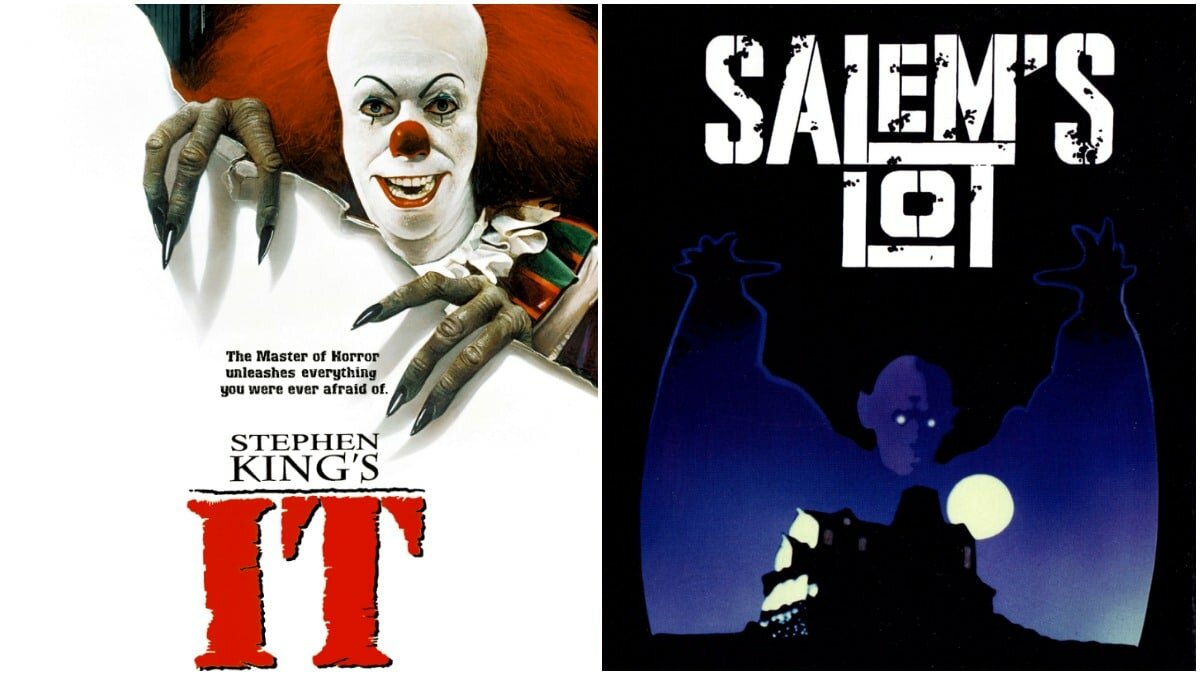
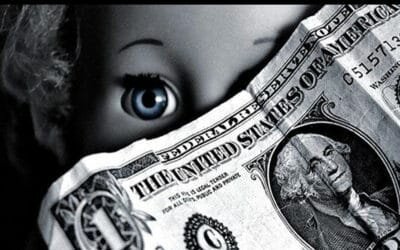
0 Comments